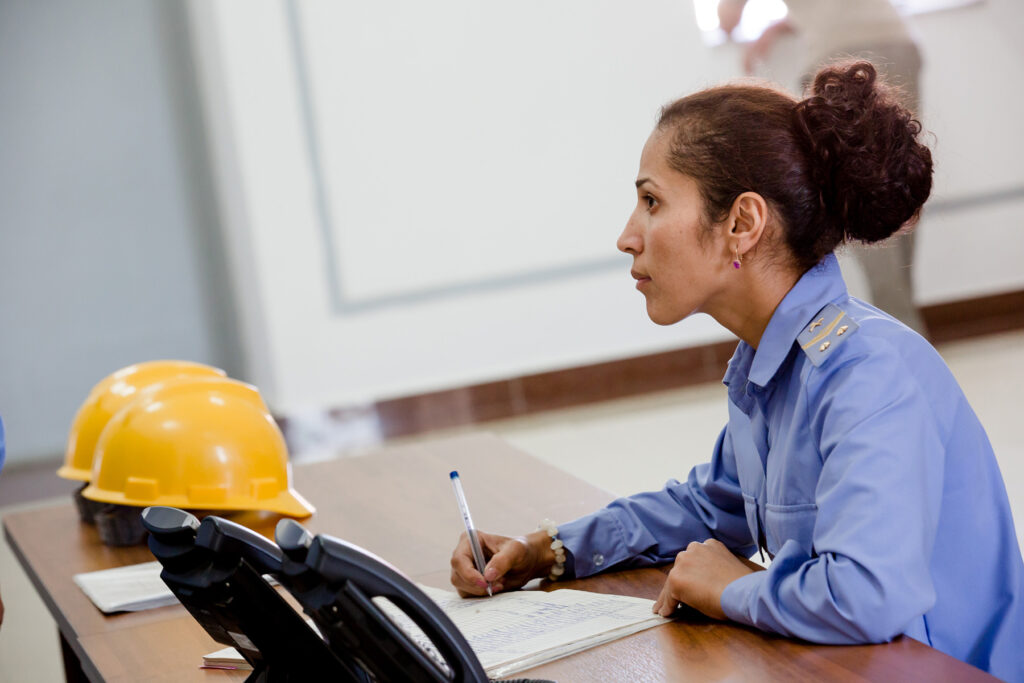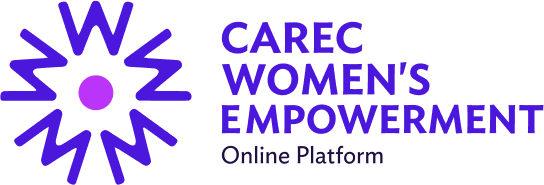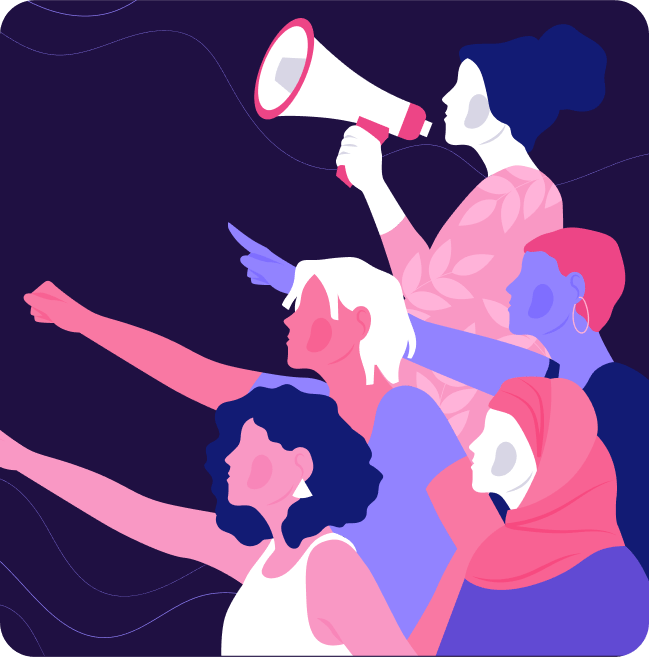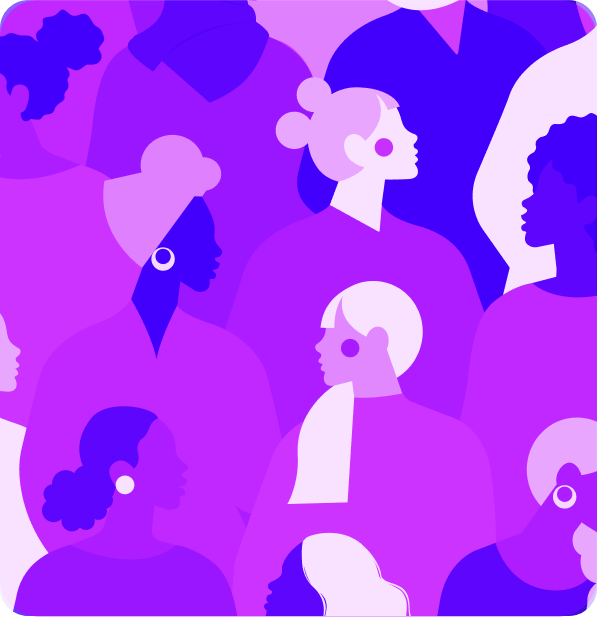
Increasing women’s presence in green jobs, particularly in technology, improves their livelihoods while helping meet the demand for labor during a green transition.
In 2018, the International Labour Organization foresaw the potential for a monumental shift towards a greener economy, predicting the creation of 24 million jobs globally by 2030 with the right policies in place.
While this forecast offers hope, it prompts a crucial question in the context of fostering a gender-inclusive future: Will this expected job surge narrow or widen the gender gap in labor force participation? Can we use this opportunity to overcome outdated career patterns?
Even before the projected job boom, women were already underrepresented in occupations crucial for a green transition, particularly in Central and West Asia. Currently, women make up only 20% of the global energy workforce and 11% of top executives in global oil and gas.
To exacerbate matters, the transition to green employment remains a challenge, with only 62 women per 100 men considered as “green talent” in 2021—a stagnant statistic since 2015. These figures highlight the significant gender disparity at both the workforce and leadership levels within the broader energy sector.
As a general trend, women have historically been underrepresented in the technological sectors. This challenge emphasizes the need for targeted efforts to ensure women’s active participation in the emerging green job market. It underscores the need to address gender imbalances and promote greater inclusivity, particularly as the energy landscape evolves towards sustainability.
In the Central Asia Regional Economic Cooperation (CAREC) region, rural women face additional challenges due to the scarcity and unaffordability of clean and efficient energy resources. As those primarily responsible for fuel collection and stove preparation for cooking and domestic heating, women bear the brunt of energy poverty, which adversely affects their time, quality of life, job-seeking opportunities, and potential for economic empowerment.
However, the anticipated job surge resulting from a green transition holds the promise of transforming this narrative for women—from vulnerability to active agents of change. It provides a unique opportunity for women to enter traditionally male-dominated sectors, especially in the burgeoning renewable energy market and other technology and innovation sectors.
Efforts are being made globally to promote gender diversity and inclusion in the energy and other industry sectors, with initiatives aimed at increasing the representation of women in various roles, from engineering and technical positions to leadership and decision-making roles.
Efforts are being made globally to promote gender diversity and inclusion in the energy and other industry sectors, from engineering and technical positions to leadership and decision-making roles.
The question then arises: How can we unlock this potential?
A crucial first step is to champion gender equity and underscore the added value of women in the technology sectors like energy, transport, or telecommunications. Empowering women in these fields necessitates a mindset shift among government and business leaders as well as more broadly amongst the public.
Moreover, enhancing women’s employability in technology-related roles demands concerted efforts to develop their capacities, equip them with requisite skills, and expand their career opportunities.
Overcoming stereotypes empowers women by allowing them to pursue diverse roles and careers without being confined by traditional expectations. Overcoming gender stereotypes promotes diversity in the workplace by encouraging a more balanced representation of men and women in various industries and professions.
This diversity can lead to increased innovation and creativity. Overcoming gender stereotypes supports the rise of inclusive leadership that values diverse perspectives and experiences. This, in turn, can lead to more effective decision-making and problem-solving in various sectors of economy. Addressing gender stereotypes is instrumental in fostering a more equitable and inclusive society.
The CAREC Program through its Gender Strategy 2030 provides a regional approach to improving gender mainstreaming and strengthening the equal access of men and women to economic opportunities. It advocates for the adoption of policies promoting equal opportunities in member countries to bolster the presence of women in technical and professional roles within the economic sectors.
This includes supporting female entrepreneurs by improving access to green financing, establishing special quotas in investment funds, and creating economic opportunities through training in technology, innovation and sales of industrial products and services. By ensuring that both men and women have equal access to opportunities and resources, societies can tap into the full potential of their entire population, contributing to economic growth and development.
Promoting regional cooperation through women’s professional networks is equally crucial. These networks offer guidance, inspiration, and knowledge exchange essential for women navigating the path towards acquiring or refining skills relevant to green jobs.
The Women in Business Online Community Platform will connect women professionals in the region, providing the advice and support they need. The CAREC Women in Business Network combined with the CAREC Digital Growth and Literacy of Women Initiative (Digital-GLOW) aim to empower women entrepreneurs in the CAREC region by improving their access to relevant knowledge in finance, marketing, and networking; developing their capacity in digital business, thus increasing their economic opportunities and closing the digital gender divide.
Lastly, it is imperative to encourage more women to pursue education related to the low-carbon transition, particularly in science, technology, engineering, and math (STEM). A holistic approach, starting from eradicating gender biases in childhood to creating conducive spaces for women to thrive in male-dominated fields, is essential.
CAREC actively supports its member countries in forging partnerships between universities, industries and service providers, and technical and vocational education and training (TVET) institutions, offering training for women in STEM and relevant TVET programs.
While much work lies ahead, increasing women’s presence in green jobs across technology sectors presents a dual opportunity—providing more employment opportunities for women and meeting the demand for labor during a green transition, contributing to a more inclusive and sustainable economic growth in the CAREC region.




